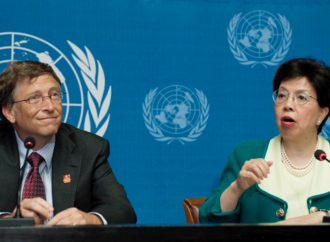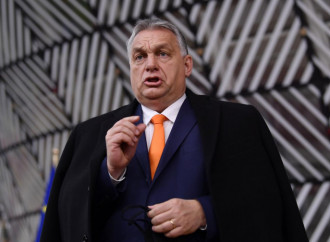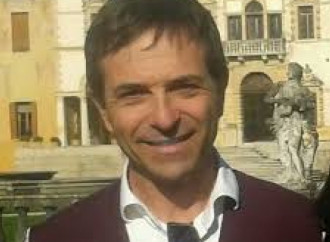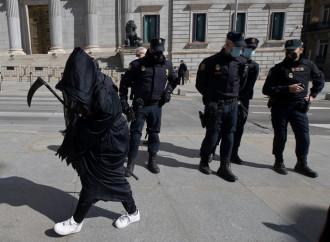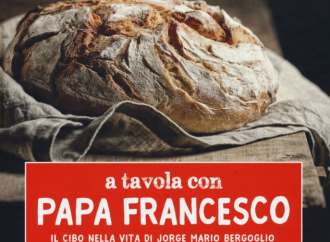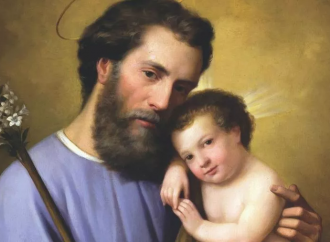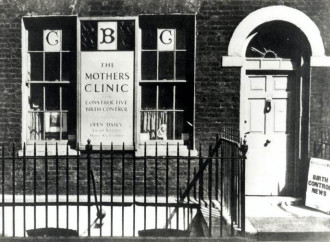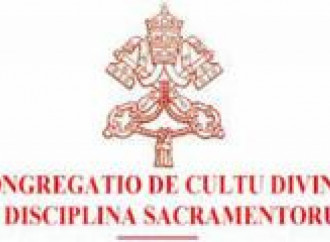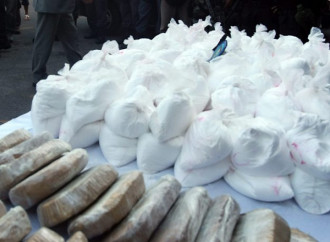How WHO and Bill Gates are taking control of our health
What lies behind making vaccination the priority? A mammoth operation of power and public and private funding which, in collaboration with the WHO (World Health Organization) the World Bank and Gavi, has received support from the wealthy elites such as Bill Gates. The Daily Compass interviewed Pier Francesco Belli, an expert in health governance, who said: "The European Union 'ceded' political control of epidemics and infectious diseases to the WHO, which is bankrolled by Gates and favours specific emergency procedures. Gates knew that making a GMO (Genetically Modified Organism) vaccine would take very little time, unlike traditional vaccinations. Teaming up with biotech companies to create a vaccine implied a whole new enterprise for pharmaceutical companies. This is exactly what happened."
Blessings for gays: Rome spake... but also didn’t
The intervention of the Congregation for the Doctrine of the Faith prohibiting blessings for homosexual couples has provoked reactions from bishops and theologians disappointed with Pope Francis. Some believe that the praxis will not change because doctrinally forbidden praxis are still being implemented despite the fact that they are forbidden. This is the result of a confused doctrine that tolerates the intolerable after having declared that it is intolerable.
Orban leaves the EPP. Time for clarity
The Hungarian Fidesz party has quit the European People's Party group. The EPP, together with the Socialists and Liberals, had already been voting against Hungary over the last two years. The EPP is systematically betraying its Christian values. Now Orban's withdrawl makes things clearer and just may be the precursor to the birth of a new, more coherent group.
“We treat Covid at home and the mortality rate is almost zero”
“The network of doctors treating the Coronavirus at home was started by one of us who wondered why such brilliant results were being achieved in Africa. When we found the solution lay in drugs and early treatment, we started to work in the same way: we respond to requests sent by email and have treated more than 6,000 cases. Mortality is practically zero”. This is what Dr Paolo Martino Allegri tells the Daily Compass about the work of IppocrateOrg.
Spain, transformed into an "extermination camp".
“Euthanasia puts an end to all rights.There are no more unavailable goods. What comes next are the laws that favour "transhumanism". This is the hour of the return of the "barbarians" who, drunk with power, do not know how to sustain the common home, the family home that Spain has meant and means. These are times when the Catholic Church cannot look elsewhere: Spain needs Christ, in whom the splendour of the truth of the person shines forth. These are the dramatic words of Bishop Reig Pla after euthanasia became law in Spain on March, 18. The Daily Compass has received permission to publish the text in full.
From Argentina to Piedmont, Francis’ favourite dishes
Argentina and Piedmont are geographically distant lands, but linked to Bergoglio's life and origins. Both their cuisines are simple and exalt the purity of ingredients. And a book, “At the Table with Pope Francis”, contains some of the Argentine pontiff's favourite recipes, from mate to bagna càuda.
- THE RECIPE: BAGNA CÀUDA
St Joseph, the father to imitate
St Joseph's greatest glory lies in having served “directly the person and mission of Jesus through the exercise of his paternity”, as Redemptoris Custos teaches. Mary's spouse carried out his paternal role with a single purpose: to do the will of the heavenly Father. That is why fathers of all times have in him, the master of the interior life, their greatest model.
Blessing of gay unions: Vatican says "No", but a problem remains
The Congregation for the Doctrine of the Faith says no to the blessing of homosexual unions, but is somewhat ambiguous when it speaks of positive elements in these relationships. The statement it used needs clarification. Here's why....
Britain’s first birth control clinic, 100 years of eugenics and racism
17th of March 1921 Marie Stopes opened Britain’s first eugenic family planning clinic in London. It’s considered one of the greatest humanitarian success of the last century even though the Eugenics Society established the clinic to eliminate the poor and sick. Critics are urging for a debate on the influence eugenics has had on birth control programs currently in use because under the slogans choice and freedom the racial discrimination of women continues today.
Liturgy, an "investigation" into Cardinal Sarah's management gets underway
A raucous decision has been made inside the Vatican. An Apostolic Visitation has just began at the Congregation for Divine Worship and the Discipline of the Sacrament which, until just three weeks ago, was headed by Cardinal Robert Sarah. This is the first time that a Vatican Congregation has been placed under investigation. This explains why Pope Francis accepted Sarah's resignation without appointing a successor right away. The Apostolic Visitor is Bishop Claudio Maniago, who has both a liberal vision of the liturgy and has faced accusations in the past of moral transgressions. The decision, whose motivation is still unknown, could also be linked to recent revised measures for Masses celebrated inside St. Peter's Basilica, directives which penalise the Extraordinary Form of the Roman Rite.
Covid and lockdown: cocaine epidemic in Europe
Sales of the drug have boomed in Ireland, Spain and the UK, where more than 10% of the population reported having used it in recent months. There are signs of growth in countries where it was previously uncommon. Some said they tripled their consumption during the closures. But the EU is turning a blind eye.
